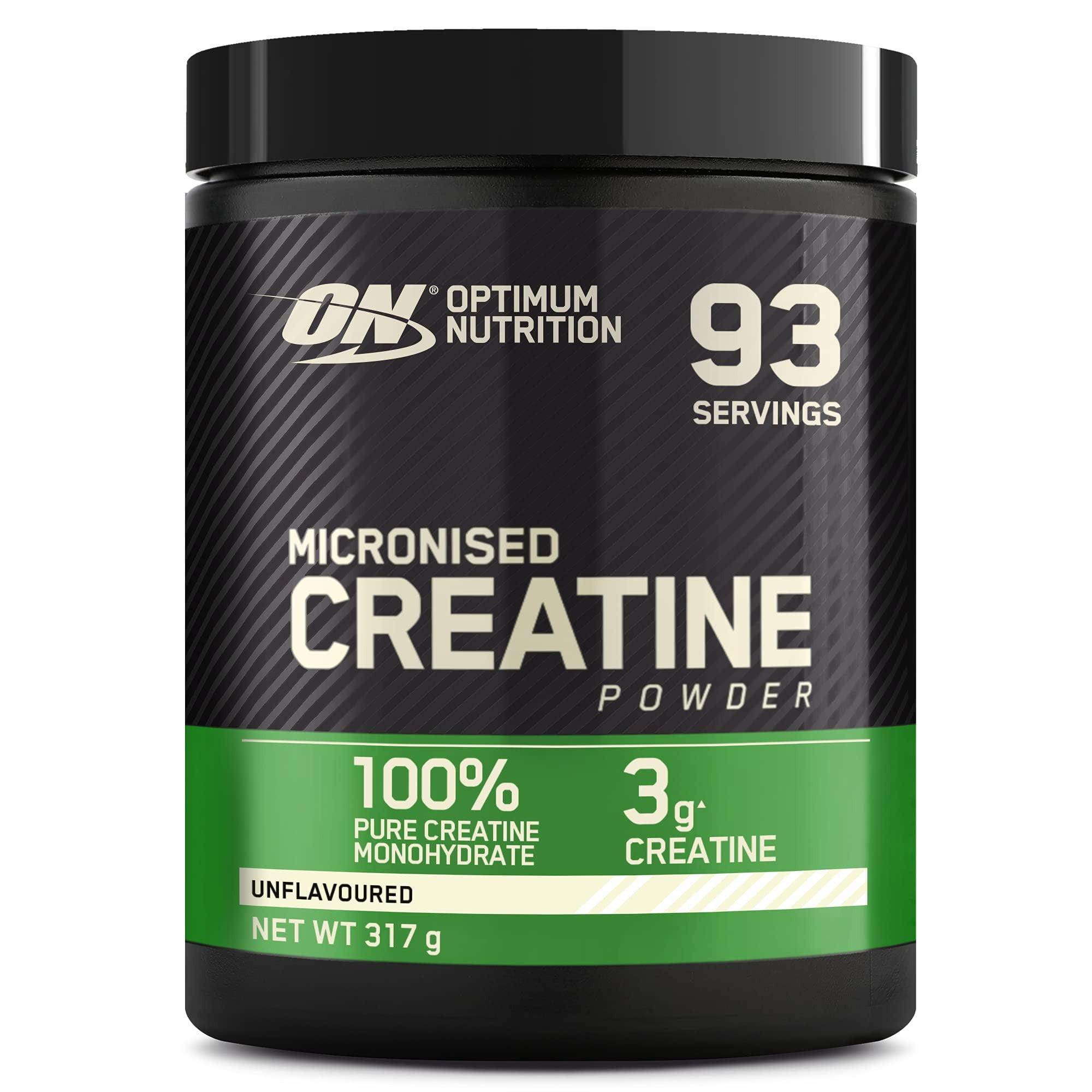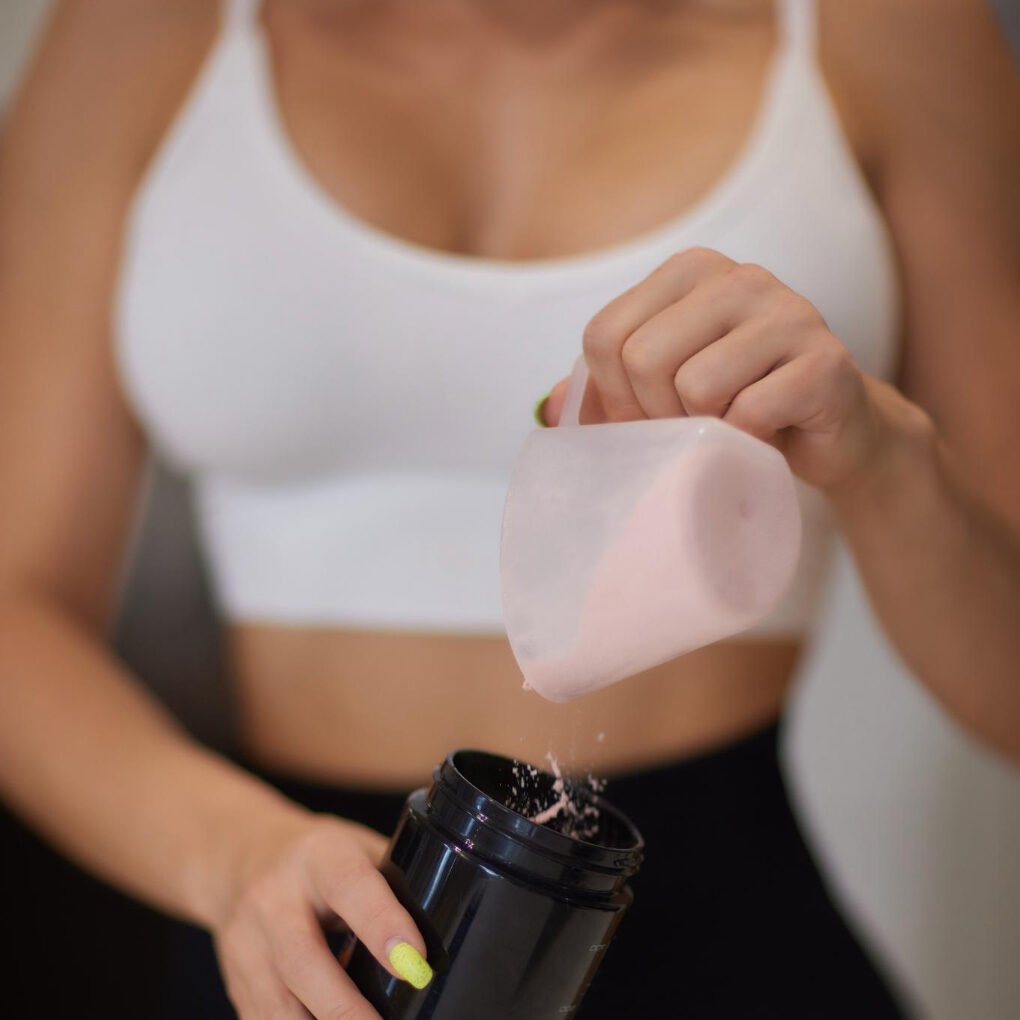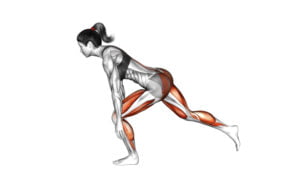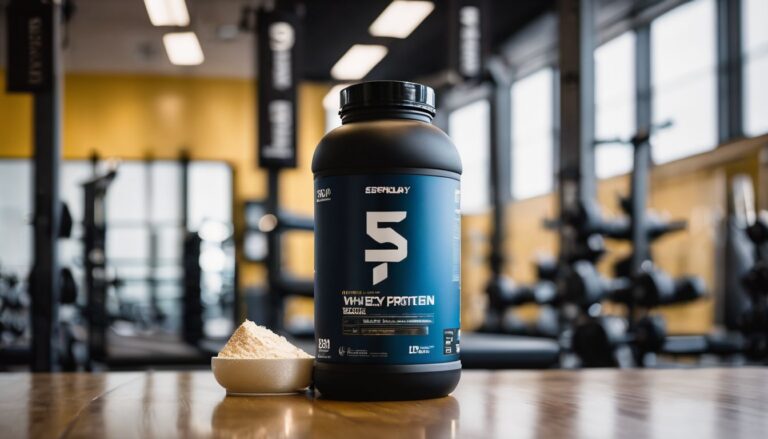The Pros And Cons Of Taking Creatine Without Exercise: Is It Effective?

Creatine is often hailed as a powerful ally in the quest for muscle growth and athletic prowess, but its potential extends beyond the weight room. With over a decade of experience in sports nutrition, I’ve witnessed creatine’s rise to prominence not only among athletes but also those seeking general health benefits.
Despite common beliefs that creatine’s effects are solely exercise-induced, emerging research suggests there might be more to this dynamic supplement.
At the core of creatine’s magic lies its role in energy production—specifically, bolstering stores of phosphocreatine which help replenish adenosine triphosphate (ATP), the currency of cellular energy.
This process proves crucial during high-intensity activities, whether or not they’re paired with structured exercise regimes. Keep reading for insights on how taking creatine sans exercise could impact your body differently than you might expect—and why it still matters.

Discover more!
Key Takeaways
- Creatine can increase body weight and improve performance even without exercise due to its role in energy production and muscle strength enhancement.
- Taking creatine might lead to digestive discomfort, water retention, and potentially affect hydration balance which calls for increased water intake.
- While creatine has both exercise and non – exercise related benefits such as better cognitive function and faster recovery times, it is not a substitute for the health benefits of regular physical activity.
- Before starting creatine supplementation without exercise, individuals should consider potential impacts on their health, discuss with healthcare professionals, and adjust diet and fluid intake accordingly.
- Despite the absence of exercise, creatine may still offer neurological benefits and assist in managing conditions like diabetes through improved glycemic control.
What is Creatine?
Creatine is a natural substance found in muscle cells that helps produce energy during high-intensity activities. There are different types of creatine supplements available, with creatine monohydrate being the most commonly used form.
Definition
Creatine is a substance found naturally in muscle cells that helps your muscles produce energy during heavy lifting or high-intensity exercise. Your body produces it from amino acids like arginine, methionine, and glycine mainly in the liver but also in the kidneys and pancreas.
This powerful compound boosts physical performance by increasing the availability of creatine phosphate, a key form of energy stored within our muscles’ cells for anaerobic activities.

As a dietary supplement, it often comes as creatine monohydrate, which has been well-researched for its ability to support muscle mass, strength gains, and aid recovery after workouts.
Supplementing with this nutrient isn’t just for athletes; vegetarians who may not get enough creatine from their diets find value in it too. It’s all about enhancing energy metabolism inside the skeletal muscles for better endurance and performance across various tasks.
Next up is understanding the different types of creatinethat are available on the market today.
Types of Creatine
Creatine supplements can vary greatly, each with unique properties and benefits. Understanding the different types can help you choose the right one for your needs.
- Creatine Monohydrate: This classic form of creatine is well-studied and praised for its effectiveness. It enhances power, strength, and muscle mass by aiding in the replenishment of adenosine diphosphate using phosphagen system.
- Creatine Ethyl Ester: Known for its superior absorption rates, this type breaks down quickly in the body. Some users prefer it as they believe it leads to less water retention compared to monohydrate.
- Buffered Creatine: Also marketed as Kre-Alkalyn®, this version claims to reduce the potential for stomach issues by maintaining a more neutral pH level. It appeals to those who experience digestive discomfort from other forms.
- Liquid Creatine: While convenient, liquid creatine may be less stable than powder forms. The concern lies in creatine’s stability in fluid over time, potentially reducing its effectiveness.
- Micronized Creatine: This form involves particles that are smaller and supposed to dissolve better in liquids. Users often report less stomach upset and faster mixing capability with micronized varieties.
- Creatine Hydrochloride (HCL): With claims of even higher solubility compared to monohydrate, HCL is another popular choice. Lower doses might be used owing to its high bioavailability.
- Creatine Magnesium Chelate: Combining creatine with magnesium aims at enhancing ATP synthesis while also providing the muscle-relaxing benefits of magnesium itself.
Pros of Taking Creatine Without Exercise

Taking creatine without exercise can lead to increased body weight, improved performance, stronger recovery, and non-sports related benefits.
Increased body weight
Creatine is known for its muscle-building properties, which can result in increased body weight. This happens because creatine helps muscles produce more energy, specially during high-intensity activity like weightlifting.
It might lead to greater muscle tissue development and water retention within those muscles, contributing to a heavier scale reading without necessarily adding fat.
For individuals aiming to enhance their physique or boost overall mass, adding creatine into their diet could provide the desired outcome of a more muscular frame. However, it’s important that this form of weight gain is paired with proper nutrients from foods like lean meats and balanced intake of carbohydrates and proteins to support healthy body composition changes.
Improved performance
Improved performance is a significant benefit of taking creatine, even without exercise. Creatine supplementation can enhance muscle strength and power, leading to improved athletic performance in high-intensity activities.
This can be especially beneficial for individuals involved in short bursts of intense physical activity, such as sprinting or weightlifting. Additionally, creatine may contribute to better cognitive performance and mental clarity, potentially enhancing overall productivity and focus in daily tasks.
Creatine’s impact on cellular energy production helps increase the body’s ability to perform at higher levels during activities that require short bursts of energy utilization while also aiding recovery between bouts of exercise.
Stronger recovery
Creatine can contribute to faster recovery times after intense physical activity. By increasing the body’s stores of phosphocreatine, creatine helps replenish ATP (adenosine triphosphate) more rapidly, which is essential for energy production during exercise.
This means that individuals who take creatine without exercise may experience quicker recovery between workouts or strenuous activities. Additionally, creatine has been shown to reduce muscle damage and inflammation, further aiding in post-exercise recovery.
The potential for enhanced recovery with creatine supplementation presents an opportunity for individuals looking to optimize their performance in physically demanding activities. Whether you’re a competitive athlete or someone who engages in regular exercise routines, incorporating creatine into your regimen could promote faster recuperation and support your overall fitness goals.

Non-sports related benefits
After experiencing stronger recovery, individuals may notice several non-sports related benefits when taking creatine without exercise. These benefits can include improved cognitive function, enhanced muscle strength for daily activities, and potentially reduced symptoms of certain neurological conditions.
Additionally, some people have reported feeling an increase in overall energy levels and a decrease in feelings of tiredness during their day-to-day routines. This suggests that creatine supplementation may offer valuable advantages beyond the realm of sports performance.
As we explore these non-sports related benefits further, it becomes apparent that creatine’s potential impact extends to various aspects of daily life, presenting an opportunity for individuals to experience improvements in both physical and mental well-being.
Cons of Taking Creatine Without Exercise
Potential digestive issues, weight gain, and effects on hydration are important considerations when taking creatine without exercise. To learn more about the potential drawbacks of using creatine without exercise, keep reading below.
Digestive issues
Creatine supplementation without exercise may lead to digestive issues such as bloating, cramping, and diarrhea in some individuals. These symptoms can occur due to the body’s difficulty in absorbing high concentrations of creatine or because of increased water retention caused by creatine intake.
To minimize these effects, it is essential to stay adequately hydrated and consider reducing the dosage if digestive discomfort arises.
Individuals should also assess their tolerance levels when engaging in creatine supplementation without exercise to determine whether digestive issues persist over time. It is advisable to consult with a healthcare professional if severe symptoms persist or worsen despite adjustments in dosage or hydration levels.

Potential for weight gain
While creatine can enhance muscle mass and strength, it’s essential to note its potential for weight gain when taken without exercise. By increasing water content in the muscles, creatine may lead to initial weight gain due to water retention.
This is not the same as gaining fat; rather, it involves an increase in total body water and intracellular fluid volume. Consequently, individuals taking creatine without engaging in physical activity should be mindful of this possibility.
Monitoring weight changes and adjusting dietary intake accordingly can help manage any fluctuations effectively.
Moreover, understanding that weight gain from creatine supplementation can vary between individuals is crucial for informed decision-making. Factors such as metabolism, baseline muscle mass, and hydration status may influence these effects differently across users.
Effects on hydration and water balance
Creatine may affect hydration and water balance in the body. It can lead to an increase in total body water, potentially impacting hydration levels. This could result in individuals needing to drink more water to maintain proper fluid balance.
The impact on water balance is an important consideration when taking creatine supplements. Understanding how it affects hydration levels can help individuals adjust their fluid intake accordingly for optimal performance and well-being.
The Bottom Line
While taking creatine without exercise may offer some benefits such as increased body weight and improved performance, it’s important to note that regular exercise is still crucial for overall health and well-being.
Before considering taking creatine supplements, it’s essential to consult with a healthcare professional or sports nutritionist to determine if it’s the right choice for your individual needs and goals.

The importance of exercise
Regular exercise is vital for maintaining overall health and well-being. It plays a key role in enhancing muscle strength, improving cardiovascular fitness, and promoting healthy weight management.
Engaging in physical activity also helps reduce the risk of chronic diseases such as heart disease, stroke, type 2 diabetes, and certain types of cancer. Additionally, exercise has been linked to improved mood and mental health by reducing stress levels and promoting better sleep patterns.
Incorporating regular physical activity into your routine can lead to numerous benefits that extend beyond just physical health. It can improve cognitive function, boost energy levels, and enhance your overall quality of life.
Whether it’s aerobic or resistance training, finding activities that you enjoy can make it easier to commit to a consistent exercise regimen that will ultimately contribute to your long-term well-being.
The potential for health benefits
Regular exercise is crucial, and when combined with creatine supplementation, it can offer various potential health benefits. Research suggests that creatine may aid in improving muscle strength and overall physical performance during resistance training.
Additionally, creatine has shown promise in enhancing cognitive function and potentially reducing the risk of neurological diseases such as Parkinson’s and Alzheimer’s. Furthermore, studies have indicated that creatine could contribute to better glycemic control and insulin sensitivity, which are vital for managing diabetes or preventing its onset.
Moreover, the antioxidant properties of creatine might play a role in reducing oxidative stress and inflammation in the body – factors associated with chronic diseases like cardiovascular conditions.
Considerations before taking creatine without exercise
Before taking creatine without exercise, it is important to carefully consider a few aspects. Here are some key considerations:
- Understand the potential impact on your body weight and muscle mass, as well as the accompanying changes in body composition.
- Assess how taking creatine without exercise may affect your digestive system, particularly considering any pre-existing conditions or sensitivities.
- Evaluate the potential for weight gain and its implications for your overall health and well-being.
- Consider the effects of creatine on hydration and water balance in your body, especially if you have specific medical concerns related to fluid retention or electrolyte balance.
- Reflect on the long – term implications of using creatine without exercise, including any potential risks or contraindications based on individual health factors and medical history.
- Discuss your decision with a healthcare professional or nutrition expert to gain personalized insights and recommendations based on your unique circumstances.
Conclusion

In conclusion, when considering the pros and cons of taking creatine without exercise, it’s essential to weigh the potential benefits and drawbacks. Understanding the increased body weight, improved performance, stronger recovery, as well as non-sports related advantages can help individuals make informed decisions.
However, it’s crucial to be mindful of potential digestive issues and the possibility of weight gain when opting for this approach. While recognizing its effects on hydration and water balance is important for overall health considerations as well.
Ultimately, making an informed decision about incorporating creatine into your routine requires careful consideration of these factors before proceeding further.
FAQs
1. What are the benefits of taking creatine without regular exercise?
Taking creatine without engaging in exercises can still be beneficial, as it may enhance your bone health and potentially play a role in managing conditions like osteoporosis.
2. Can creatine improve mental health if I’m not exercising?
Creatine has been associated with brain benefits such as stress reduction and may help combat cognitive decline related to conditions like dementia or Alzheimer’s disease, even without exercise.
3. Will my body still use creatine effectively without workout routines?
Your body can utilize creatine to aid glucose tolerance and support muscle tissues despite not participating in aerobic exercise or other forms of physical activity.
4. Are there any downsides to using creatine without hitting the gym?
Without pairing with exercises, taking creatine might lead to an imbalance in insulin-like growth factor-1 levels or contribute to oxidative damage within the muscles due to lack of usage.
5. How do sports nutritionists view taking protein powders like creatine sans exercise?
Sports nutritionists might advise that while some benefits exist, optimal results from supplements like BCAAs and protein powders typically require combining them with targeted exercises for maximum efficacy.
6. Should I talk to a personal trainer about starting on pre-workouts and supplements like creatine even if I don’t plan on working out regularly?
Consulting with a personal trainer can provide personalized guidance on whether incorporating supplemets such as pre-workouts would suit your goals, particularly if you’re not actively exercising.

Author
Years ago, the spark of my life’s passion ignited in my mind the moment I stepped into the local gym for the first time. The inaugural bead of perspiration, the initial endeavor, the very first surge of endorphins, and a sense of pride that washed over me post-workout marked the beginning of my deep-seated interest in strength sports, fitness, and sports nutrition. This very curiosity blossomed rapidly into a profound fascination, propelling me to earn a Master’s degree in Physical Education from the Academy of Physical Education in Krakow, followed by a Sports Manager diploma from the Jagiellonian University. My journey of growth led me to gain more specialized qualifications, such as being a certified personal trainer with a focus on sports dietetics, a lifeguard, and an instructor for wellness and corrective gymnastics. Theoretical knowledge paired seamlessly with practical experience, reinforcing my belief that the transformation of individuals under my guidance was also a reflection of my personal growth. This belief holds true even today. Each day, I strive to push the boundaries and explore new realms. These realms gently elevate me to greater heights. The unique combination of passion for my field and the continuous quest for growth fuels my drive to break new ground.















